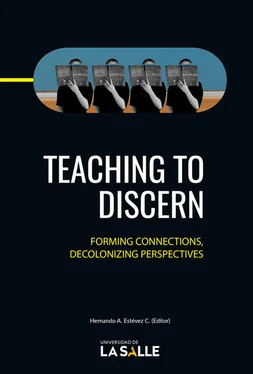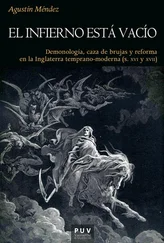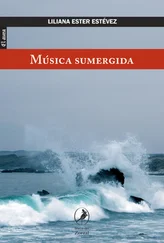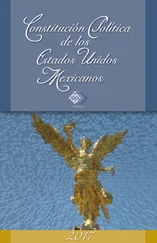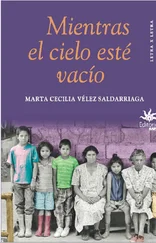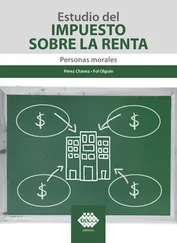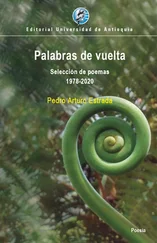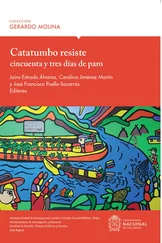2 Giovanni Anzola1 Peter W. Cunningham2 1 Giovanni Anzola1 Peter W. Cunningham2 1 Giovanni Anzola has a Bachelor Degree in Education from Universidad Pedagógica Nacional, Colombia. He also has studies in Project Management, Human and Financial Resources and Leadership from the Carl von Ossietzky University of Oldenburg, and is a PhD in Philosophy from Nelson Mandela University. 2 Peter W. Cunningham is a professor at Nelson Mandela University. Economic Sociology Department, Faculty Member. Giovanni Anzola has a Bachelor Degree in Education from Universidad Pedagógica Nacional, Colombia. He also has studies in Project Management, Human and Financial Resources and Leadership from the Carl von Ossietzky University of Oldenburg, and is a PhD in Philosophy from Nelson Mandela University. 2 Peter W. Cunningham is a professor at Nelson Mandela University. Economic Sociology Department, Faculty Member.
Peter W. Cunningham is a professor at Nelson Mandela University. Economic Sociology Department, Faculty Member.
Introduction
In order to gain new ways of understanding the world, we need to rethink academic environments. In this sense, a commitment to provide new generations with practical, communicational and critical thinking skills necessary to face present challenges is imperative. This effort provides students with opportunities as members of the global village. Obviously, globalization implies, to some degree, the loss of individual and cultural identity, and academia has an important role in creating common scenarios for the convergence of experiences and knowledge.
Higher Education Institutions (HEIs) are becoming important problem-solving environments in which researchers think about complex issues concerning contemporary societies. In this sense, several questions demand answers: how to move to new societies; how to achieve sustainable cities; how our contexts can be re-purposed, redesigned for healthier and more resilient settings with improved economic efficiency and less impact on the environment; and how HEIs can address these issues from a knowledge-based perspective.
In addition, the role that HEIs can play to help societies to grapple with their very complicated social limitations is a matter of examination, especially the way students can be agents of social transformation by applying knowledge to real life, and how faculty members can become mediators to tackle social challenges. It also seems that an open dialogue within the different branches of an educational institution must be encouraged in order to reach agreements on how to deal with those challenges.
As members of the organizational staff, we have learnt that relationships strengthen by solving problems together and that knowledge is created through these efforts and in dealing with issues arising in real time. Wise institutions cultivate alliances and common efforts at problem solving. Consequently, institutions must seek international scenarios for cooperation. The ultimate goal is to bring together different innovative experiences and abilities in order to further societal goals.
It was back in 2011 when two faculty members from the University of Mississippi visited Universidad de La Salle to teach some courses on intercultural issues for students at the School of Education. This experience ignited a series of reflections on the possibilities of offering students an international and multicultural experience, especially for those who could not go abroad but had the skills to intermingle with people from other latitudes. This sparked the idea of instituting permanent interdisciplinary courses taught in the English language and under teaching and learning interactions based on a problem-solving approach.
The idea of having visiting scholars at La Salle was conceived as an “in-house-mobility-laboratory” on the premise that mobility means the interchange of knowledge and that individuals serve as “vehicles” to disseminate such knowledge. This concept is different from the traditional understanding of mobility programs in which, sometimes, the sheer number of students or faculty members that have travelled is seen as an indicator of the level of internationalization achieved. Our motivation, rather, was bringing the world to the students.
In order for this initiative to work, a new internal organization had to be devised, with new academic and administrative units. As a result, an international and intercultural campus came to life, not only for students, but also for the staff.
Our “Summer Academy” grew in scope and organization and became a tradition at the university. Every year, the courses have a different interdisciplinary thread: Latin American ideas, leadership and global understanding, alternatives to socio-economic growth, peacebuilding, innovation, entrepreneurship, and sustainable development.
The reflections presented herein have to do with how to make interactions between individuals possible, but also with how to transfer knowledge in order to achieve solutions to real-life problems.
Background: The Need for an Integrated Region
Latin America is going through a strong economic recession, accompanied by great social and political challenges. This crisis is structural due to inefficient and uncompetitive social systems that have increased poverty and inequality, as well as public and private indebtedness. Latin American societies have the common challenge of creating a conscious, civic, efficient, but, above all, innovative and critical human capital that would allow raising international competitiveness while creating social conditions for a better distribution of wealth.
Latin American economies, in general, and the Colombian economy, in particular, all face the challenge of guaranteeing students’ access to and continuity in higher education. According to Izecson de Carvalho, Looi, Saad, and Sinatra (2013), only 40 out of every 100 students who start elementary education in Colombia will finish high school. Out of those, ten will go to college, and only five will graduate — a situation that is mainly due to economic distress. Such a worrying situation makes it imperative for higher education institutions to take a political stand and insist that education is decisive in achieving social development and not a luxury for the very few people who can afford it.
Therefore, Colombia faces a big challenge if educational institutions (both public and private) do not see themselves as a collective that must help society to achieve development and wealth. These institutions must be aware of their responsibility to change the historical path of the country instead of simply reacting to global trends in order to survive. It would be useful to approach a social constructionist perspective that considers that, among other things, educational institutions build the realities of the individuals as they interact with the outer world; that means that these institutions need to bring the world to the classrooms.
Development integrates human, cultural, environmental, social, productive, and welfare values; in order to achieve it, education must be connected to the specific needs of society. We believe that mobility facilitates the interchange of ideas that help our countries devise useful and autochthonous ways of reaching the desired development.
To ensure the flow of knowledge and ideas, mobility cannot be a privilege of the few; it should benefit all manner of students, especially those in need. With regard to international opportunities, Colombian HEIs should use their available resources to achieve the aim of knowledge exchange. The first step is to create institutional mechanisms to strengthen access to higher education. A weak higher education endangers democracy, the productive apparatus, as well as other social structures needed to overcome the systemic crisis.
Читать дальше
